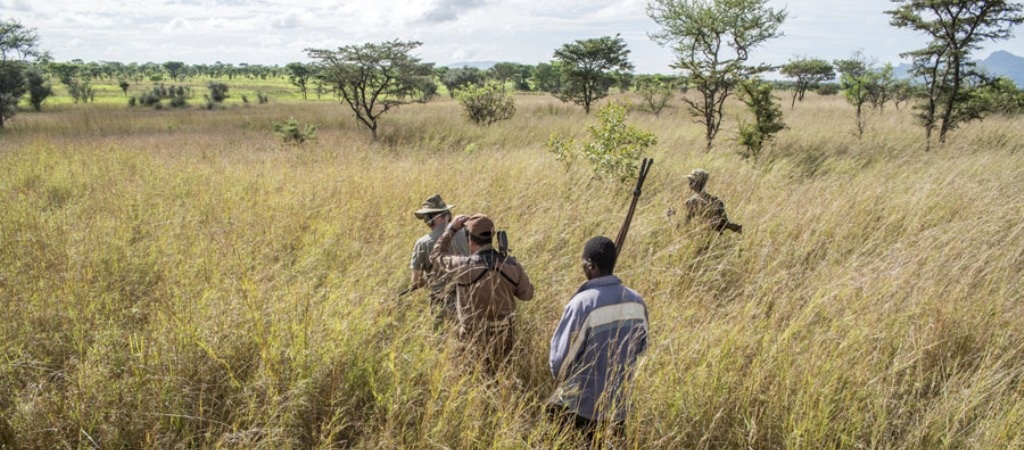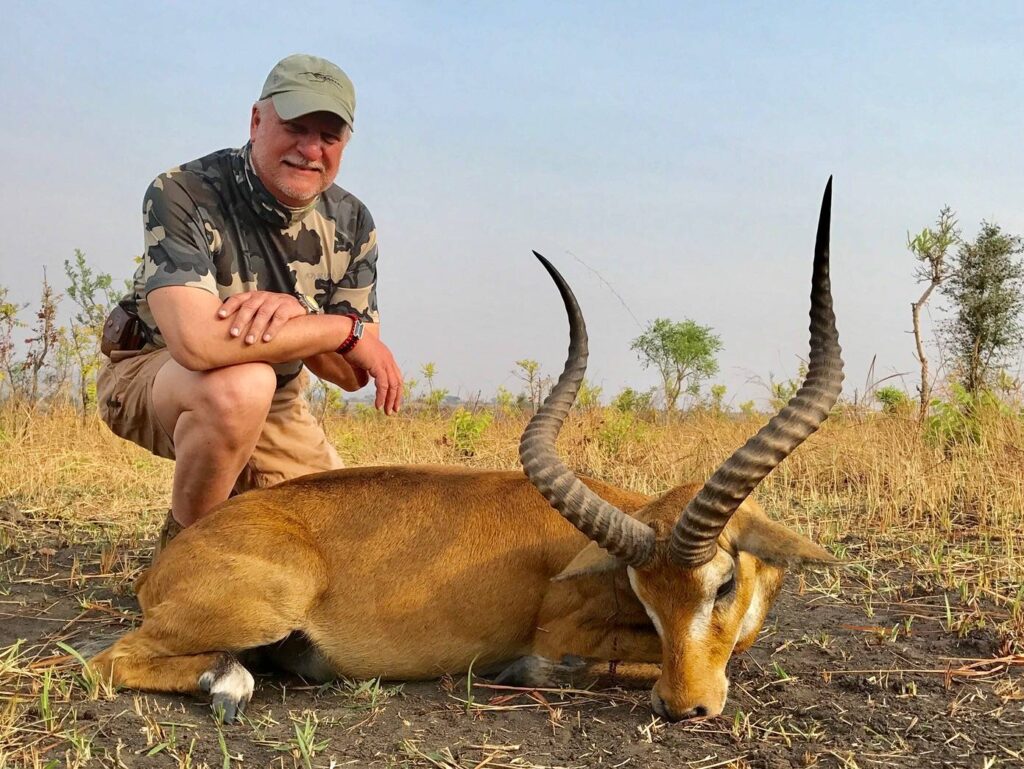Uganda Hunting Safari
Uganda Hunting Safari: The Price of Hunting in Uganda: Uganda is a landlocked nation located on the eastern side of the African continent. Kenya, Sudan, the Democratic Republic of the Congo, Rwanda, and Tanzania are the countries that border central Africa. Furthermore, while being primarily equatorial, Uganda is entirely contained within the Nile basin. Because altitude affects climate, Uganda’s climate is not consistent. However, during the day, temperatures typically reach 35 degrees Celsius, or 90 degrees Fahrenheit, and at night, they fall to 5 degrees Celsius, or 40 degrees Fahrenheit.
The hunting season in Uganda runs from January to November. Although it rains all year round, April through June and November often see a little more precipitation.
December to the end of April is the ideal time of year to hunt buffalo and hartebeest. when hunting buffalo becomes difficult due to too high grass. It is possible to hunt other species all year round. Safaris in the Kafu River Basin and the papyrus belts along the banks of the Nile River are conducted in Uganda‘s protected regions, which have the highest concentration of Sitatunga in Africa.

Ammunitions and firearms
To Uganda, each hunter is permitted to bring two rifles. There is no upper limit on the quantity of ammunition that can enter Uganda. However, airline regulations severely limit this to “usually 11 pounds.” For a small riftle, the ideal mix would be 60 rounds, and for a heavier rifle, 20 softs and 20 solids. Handguns and semiautomatic firearms are forbidden. Using silencers when hunting is prohibited. Therefore, we advise a.270-.300 for the majority of animals and a.375-.416 for buffalo. Good question. Camp firearms and ammunition are available for use at an additional expense if a hunter prefers not to bring their own rifle on the safari. When scheduling the hunt, all you have to do is confirm the price and firearm model.
Licenses and Permits
Prior to their arrival, all sport hunters traveling to Uganda must get a hunting license and an import authorization for rifles.
The authorities charge a daily conservation fee of USD 40 for non-hunters and USD 100 for hunters. The entire safari package includes the cost of two weapons and the importation of ammunition under royalties.
Murchison Falls National Park, Lake Mburo National Park, Mgahinga Gorilla National Park, Kidepo National Park, and Mount Elgon National Park are among the top hunting destinations in Uganda.
Where in Uganda can I go sport hunting?
National game reserves, communal hunting areas, and private land are the three categories of hunting areas. Private companies run communal hunting sites in Uganda. It should be noted that sport hunting is not very advanced in Uganda. Some of the hunting areas have especially bad road systems. The Ssese Islands “for Sitatunga,” East Madi Wildlife Reserves, Ajai Wildlife Reserve, Kabwoya Reserve, and Karamoja are the greatest places to go sport hunting.
On the Ssese Islands, hunting is typically done with ten or more escorts. Due to their extensive local knowledge and hunting expertise, these ex-poachers are engaged. Hunting in Kabwoya Wildlife Reserve is beautiful because you can hunt a variety of animals, including Uganda kob, Jackson’s hartebeest, warthogs, buffaloes, oribis, and bushbucks. Matheniko, Bokara, Pian Upe Wildlife Reserves, and the entire region surrounding South Sudan are among the other top hunting locations in Uganda.
The skins, horn, and hides are available to the participating hunter. In Uganda, it typically costs US$2000 to shoot a leopard, US$1000 to kill a hippo, and US$100 to shoot a hyena. To rebuild the wildlife population in northern Uganda, the Uganda Wildlife Authority is collaborating with organizations such as the Aswa-Lolim Wildlife Association and Uganda Wildlife Safaris.

What should I bring to Uganda for sport hunting?
The following clothing items are suggested:
Long-sleeved shirts and T-shirts
Robust hiking boots
Sweatshirts
Shorts in Khaki
Waders for hunting
Sufficient underwear and stockings
Raincoat and warm jacket
Caps
Toiletries
Sandals and flip-flops for when you return to your lodge
Backpack for hunting
Repellants for insects
Hunting gaiters
Travel-related documentation
Make copies of your private records.
A valid passport
Visas
Tickets for airlines
Health necessity
Power adapters for laptops, cell phones, and other devices



